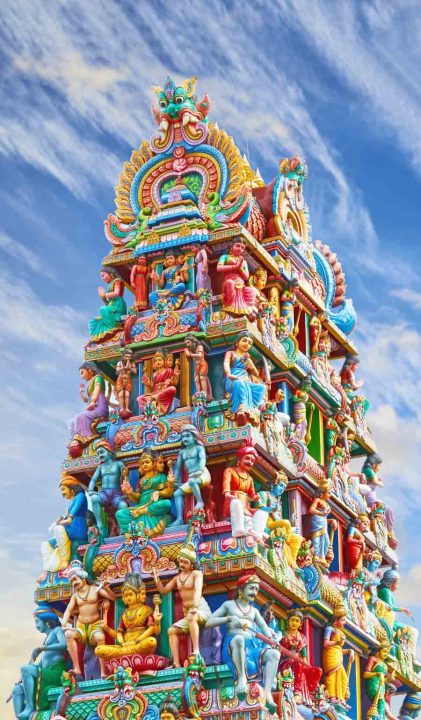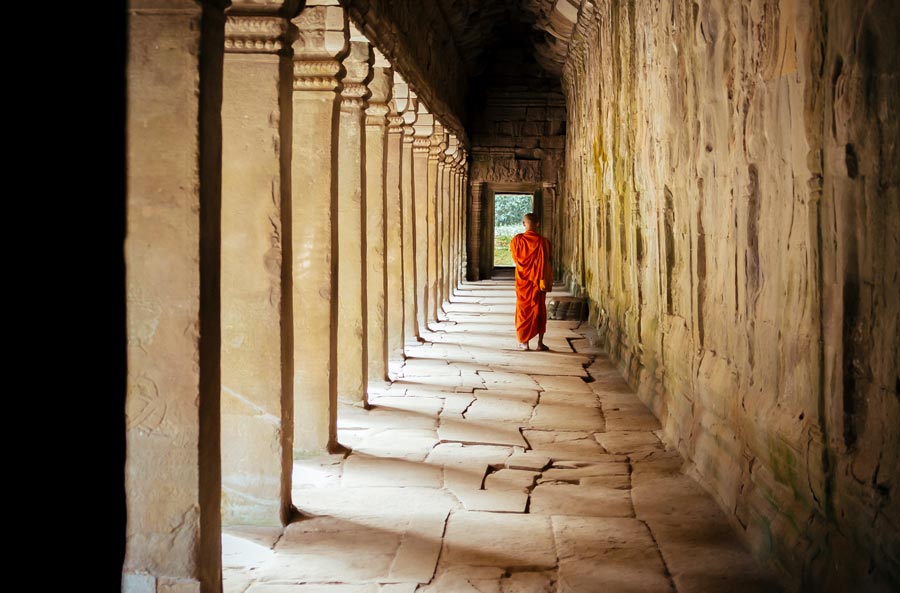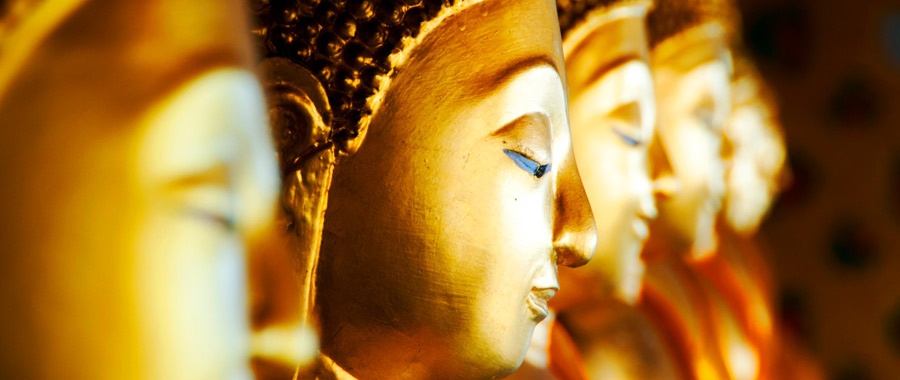The views expressed in our content reflect individual perspectives and do not represent the authoritative views of the Baha'i Faith.
Central to the Baha’i Faith is the notion that revelation is divine. Throughout history, God has sent messengers to the world to convey fundamental spiritual principles and reveal social teachings specific to each age. But when we look at the teachings of different religions, it can seem that their beliefs are irreconcilable.
One reason may be that over time, even the deepest spiritual lessons of the world’s faiths have been rewritten or misunderstood. Another reason may be that the depiction of these spiritual principles varied, as each divine messenger had to communicate in the context of a specific culture and time.
Two religions that at first glance contrast starkly with monotheistic religions are Hinduism and Buddhism. After all, how can the belief in many gods and in no God be compatible with the belief in one God?
But both Krishna and Buddha are recognized in the Baha’i Faith as authentic manifestations of God, or prophets. Why?
Hinduism
If you ever have the privilege of going to a Hindu temple, you will be met by the fragrant scent of incense, the sound of drums and horns and the bedazzling sight of a multitude of vibrant colors. You will also see an abundance of intricate statues of various gods, depending on which temple you enter. In fact, there are said to be 33,333 different Hindu deities.

However, when we investigate a little more deeply, we learn that according to some interpretations, at the basis of all of these gods is Brahman, the ground of all reality or Absolute. In the Baha’i Faith, this reality is called the Unknowable Essence: God as He exists in Himself and beyond creation.
In many schools of Hindu thought, God, the soul and the universe are one. This is not the Baha’i view, which stresses that God’s existence transcends His creation. Baha’u’llah, the founder and prophet of the Baha’i Faith, wrote: “Every created thing in the whole universe is but a door leading into His knowledge, a sign of His sovereignty, a revelation of His names, a symbol of His majesty, a token of His power, a means of admittance into His straight Path…” While God’s essence is forever beyond our grasp, His attributes are not. The manifestations of God perfectly mirror those attributes, such as kindness, love and generosity, and by following the path set forth by them, we can perceive and develop these qualities.
But what does this have to do with Hinduism?
One way to see the plethora of deities in Hinduism is that each one is a depiction of different attributes of God. Perhaps at a certain moment in history, this was the best way to help people comprehend God. By personifying God’s attributes and making them tangible, people could better comprehend and draw nearer to the divine. What some might call idols, others might see as symbolic manifestations of divine attributes.
Buddhism
Buddhism is often regarded as an atheistic religion, which is one reason why it has become popular in many secular segments of modern society. However, if we look at the Dhammapada, Buddha repeatedly makes reference to the gods. Dhammapada 45, translated by Anandajoti Bhikkhu, states: “The trainee knows this earth and the lower realm, together with the gods. The trainee will reflect on the well-taught verse of Dhamma as a good man reflects on a flower.” This shows that Buddha did not intend to completely uproot the Hindu belief system, just as Jesus did not come to dismantle Jewish law. Matthew 5:17 states: “Think not that I am come to destroy the law, or the prophets: I am not come to destroy, but to fulfil.”
Perhaps what Buddha intended to do was to change people’s emphasis. When people believe in a deity, they have the tendency to place their salvation in the hands of the divine. Obviously, faith is essential in any spiritual path, including the Buddhist one, but relinquishing responsibility for one’s own fate is a futile way to live.
Instead, much of the emphasis in Buddhism is on individual transformation. It is the responsibility of each individual to see through the illusions of life and purify one’s self. Nobody can do this for you. Dhammapada 104-105 tells us: “Conquest over self is better than that over other people, for the one who conquers himself, who lives constantly well-restrained, neither gods, nor gandhabbas, nor Māra together with Brahmās, can turn conquest into defeat for a person who is like this.”

In Mahayana Buddhism, the liberation of all beings is the primary aim. However, this must also be done by enlightening one’s self. Baha’u’llah, the prophet founder of the Baha’i Faith, also emphasized this point: “resolve to gain the victory over your own selves, that haply the whole earth may be freed and sanctified from its servitude to the gods of its idle fancies.”
Therefore, it is misleading to say that Buddhism is an atheistic religion. The Buddhism that many know about simply isn’t concerned with the metaphysical question of God’s existence. In Hinduism, there are copious conceptions of God which conflict with one another. Perhaps the Buddha intended to side-step these debates and focus on the existential issue of suffering and how to alleviate it.
For this reason, some have said that Buddhism is not a religion at all; it is a way of life. But because Bahai’s recognize Buddha as a divine manifestation of God, they regard this path as religious.
These are just two speculative interpretations of how Hinduism and Buddhism can be understood from my perspective. No doubt, because both of these faiths began such a long time ago, we cannot be sure what Krishna and Buddha originally taught. But even today, if we look deeply, we can find many threads that tie these faiths together.
















Comments
Sign in or create an account
Continue with Googleor